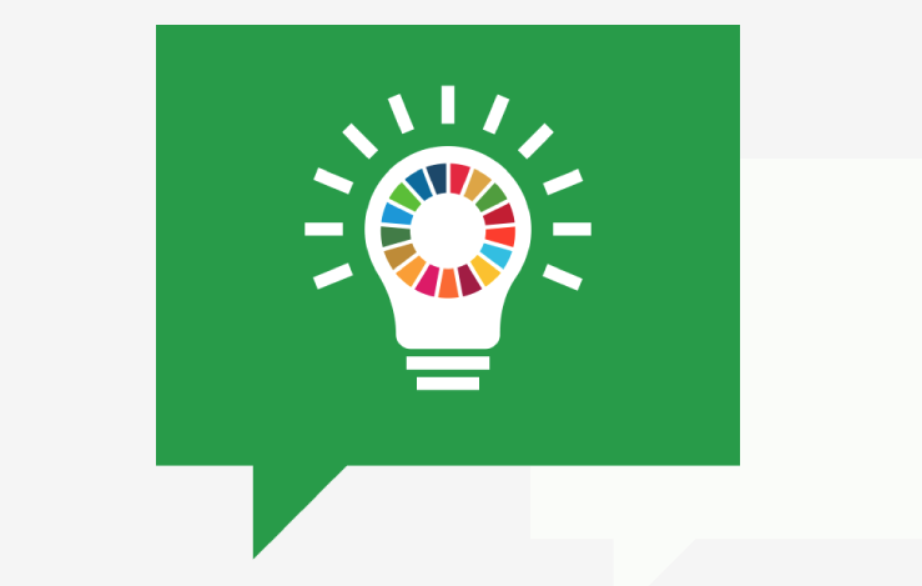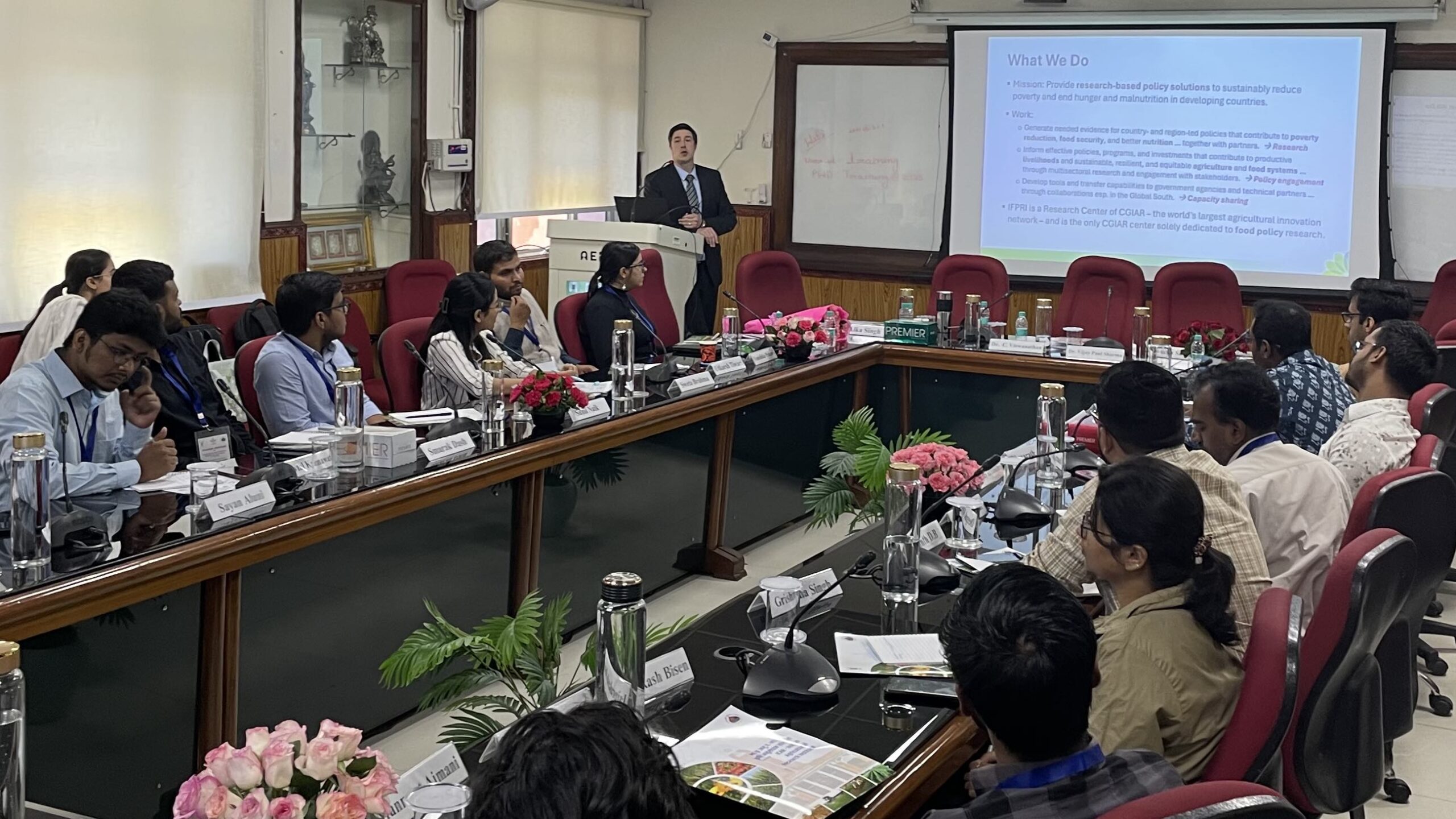The upcoming UN Food Systems Summit in September will launch bold new actions to deliver progress on the 17 Sustainable Development Goals (SDGs). IFPRI has taken the lead on the summit’s Gender Equality and Women’s Empowerment Lever of Change to ensure that gender gets an appropriate focus by the event’s Technical Working Groups and in its ultimate outcomes. Reema Nanavaty, Director of Rural and Economic Development at the Self-Employed Women’s Association (SEWA) of India, is participating as a gender expert in the summit’s Action Track 4, “Advance Equitable Livelihoods.”
To discuss these issues, IFPRI, SEWA and the Center for People and Forests (RECOFTC) co-hosted a South Asia regional dialogue on Women, Work and Food Systems on March 4. The virtual event brought together more than 100 participants, including economists, academics, scientists, farmers and farmer organizations, policy makers, consumers, and private sector representatives from India, Singapore, Nepal, Sri Lanka, Afghanistan, and other countries.
Martin Frick, Deputy to the Special Envoy of the UN Secretary General for the Food Systems Summit, emphasized that focusing on the roles of women and women’s empowerment in the food system were essential goals that would have positive environmental impacts.
SEWA President Kapilaben Vankar focused on the challenges informal sector women workers face across the food system. Women tend to put their families first, and yet due to lack of access to assets and agency are often deprived of access to nutritional food.
“Poor women workers from the informal economy play a major role in the food system—as producer, as distributor, as vendor, as cook, as caregiver… and yet they hardly have a voice or visibility,” Vankar said. “Therefore, to transform the current food system there is a need for the women workers in the food system to organize… to form their own food-production, food-processing, agri-business enterprises… to increase their collective strength and to generate decent livelihood opportunities.”
SEWA programs such as its agribusiness enterprise RUDI, its food processing initiative Kamala, and vegetable value chain SEWA Bazaar have helped her and thousands of SEWA members address those issues, she said.
IFPRI Africa Director Jemimah Njuki noted that she herself was the daughter of a small and marginal farmer from Africa and said that hearing Kapilaben, she was reminded of her parents.
Njuki said that the summit marked the first such major international event in which gender equality is a central focus. Women are key actors in food systems, she said, and stark gender inequalities are both a cause and outcome of unsustainable food systems, unjust food access, consumption and production. Change requires a focus on women’s agency, aspirations, skills, and access to resources (including land, organizing, technologies), and on issues of norms and patriarchal structures, and policies.
Breakout sessions focused on the five summit Action Tracks and on devising potential solutions. Here are some highlights:
Action Track 1—Ensure access to safe and nutritious food: “Access, affordability and availability of nutritious food should go hand in hand. ” … “Women play a direct and significant role in the food system and yet all decisions are made by men … therefore, there is a need for sensitizing men”
Action Track 2—Shift to sustainable consumption patterns: “What is being produced is not eaten, and instead is exported. What is being eaten, is what has been imported.”
“Current policies do not ensure ownership of land to women, or disassociate access to resources and land ownership, thus leading to women’s inability to access financial resources, extension services, benefits and entitlements from Govt as a small farmer.”—Nirja Mattoo, Professor at the S. P. Jain Institute of Management and Research in Mumbai.
Action Track 3—Boost nature-positive production: “Protecting and carefully managing the commons, forests, pastures, even the water resources and farm lands, is a very important and uncontested solution to boost nature-positive production.”—IFPRI Senior Research Fellow Ruth Meinzein-Dick.
Action Track 4—Advance equitable livelihoods: “The only real way to address the power imbalance in food systems and in the food chain is if women have the power to organize. So coming together with organizations like SEWA, for me, is absolutely key to changing the power balance and to ensuring equitable livelihoods.”—Sue Longley, General Secretary of the International Union of Food, Agricultural, Hotel, Restaurant, Catering, Tobacco and Allied Workers’ Associations (IUF).
“There is a need to emphasize, promote, replicate and scale-up existing models that increase women’s agency in the food systems, as well as generate livelihood opportunities for more rural women workers.” – Ford Foundation Program Manager Srinivasan Iyer.
Action Track 5—Build resilience to vulnerabilities, shocks and stress: “The fact that agriculture is considered informal is a barrier to women’s rights. Also, farming is a family trade. Therefore, decision-making processes in the family need to be more equitable; women, children should also have a say in these decisions”—Ronny Novianto of the Indonesia farmer and fisheries network SPTN HPS.
At the end of the discussion, each group came up with three solutions. Here are a few:
- Organizing is the key to empower rural women workers and small holder women farmers and make the food systems equitable and just. Promoting their own member-owned and managed supply chains will help building their collective strength, bargaining power, and decision-making.
- Policies that treat farming as an enterprise, promote women-owned and managed social enterprises and bring in technology and skills to strengthen the decentralized supply chains.
- Policies that explicitly recognize and promote the rights of women who are structurally disadvantaged.
Summing up, V.S. Parthasarathy, CFO of the multinational Mahindra and Mahindra Group, emphasized the importance of organizing, along with the right to free association, the right to collective bargaining, and access to technology, finance and resources. Solutions like promoting local decentralized value chains fully owned and managed by the women farmers, producers, and workers came up across all five themes and is a promising solution to address the issues Kapilaben brought up.
The results of the dialogue will be presented to the leads of each Action Track and to the Special Envoy of the UN Food System Summit, Njuki said.
With such contributions, said Nanavaty, the summit will help shape a food system that is more equitable and inclusive, and ultimately free from hunger and starvation.
Mansi Shah is a Senior Technical Coordinator with SEWA. A version of this post first appeared on the SEWA website.







